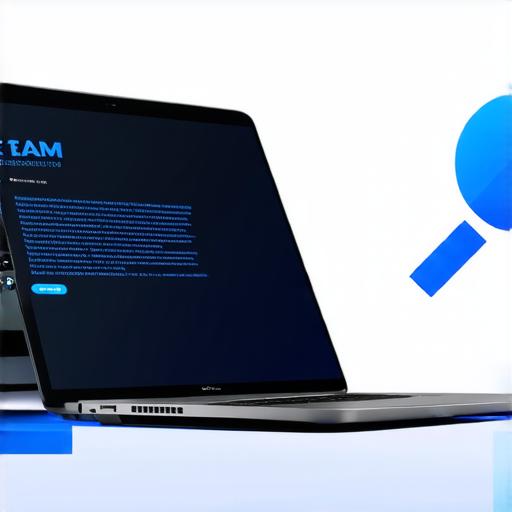Introduction
Search engine optimization (SEO) is an essential aspect of any online business’s digital strategy. With the vast majority of web traffic coming from search engines like Google, it’s crucial to ensure that your website ranks highly on these platforms.
One way to achieve this is by leveraging L2 teams, which are responsible for managing and optimizing a company’s SEO efforts.
The Roles of L2 Teams in SEO
Technical SEO refers to the optimization of a website’s technical elements to improve its visibility and performance on search engines. This includes ensuring that the site is mobile-friendly, has fast loading times, and is structured in a way that makes it easy for search engines to crawl and index.
1. Technical SEO
L2 teams are responsible for implementing best practices in technical SEO, such as optimizing images, adding alt tags to links, and ensuring that the site’s code is clean and well-organized.
2. Content Creation and Optimization
Content creation and optimization is another key role of L2 teams in SEO. This involves creating high-quality, relevant content that targets specific keywords and topics.
L2 teams are responsible for researching and identifying the most effective keywords to use in titles, meta descriptions, and other on-page elements. They also work with content creators to ensure that all content is optimized for search engines and meets best practices for content creation and optimization.
3. Link Building
Link building is the process of acquiring high-quality backlinks from other websites to your own. This can greatly improve your website’s authority and visibility on search engines, leading to higher rankings and increased traffic.
L2 teams are responsible for implementing link building strategies, such as guest posting, broken link building, and outreach to relevant websites.
4. Analytics and Reporting
L2 teams are also responsible for monitoring and analyzing website performance metrics, such as organic search traffic, bounce rates, and click-through rates. They use this data to make informed decisions about SEO strategies and optimize the site’s performance over time.
Additionally, L2 teams are responsible for creating reports that summarize the site’s performance metrics and provide insights into areas that need improvement.
Best Practices for Managing L2 Teams in SEO
1. Clearly Define Roles and Responsibilities
It’s important to clearly define the roles and responsibilities of each member of your L2 team, as well as establish clear communication channels and expectations. This can help ensure that everyone is on the same page and working towards the same goals.
2. Provide Ongoing Training and Support
L2 teams require ongoing training and support to stay up-to-date with the latest SEO best practices and tools. It’s important to provide regular training opportunities, as well as ongoing support and guidance to help team members improve their skills and performance.
3. Use Data and Analytics to Inform Decision Making
Data and analytics are critical to making informed decisions about SEO strategies. L2 teams should be trained on how to use data and analytics tools to track site performance, identify trends, and make data-driven decisions.
4. Foster a Culture of Continuous Improvement
Finally, it’s important to foster a culture of continuous improvement within your L2 team. This involves regularly reviewing and analyzing performance metrics, identifying areas for improvement, and implementing new strategies to drive better results.
Real-Life Examples of Effective L2 Teams in SEO
Example 1: HubSpot
HubSpot is a leading provider of marketing and sales software solutions. Their L2 team plays a critical role in driving organic search traffic to their website, which has helped them become one of the most successful companies in the industry. The team’s focus on creating high-quality, relevant content that targets specific keywords has helped HubSpot achieve top rankings on search engines and drive significant amounts of organic traffic to their site.
Example 2: Moz
Moz is another leading provider of SEO software solutions. Their L2 team is known for their expertise in link building and technical SEO, which have helped them achieve top rankings on search engines and drive significant amounts of organic traffic to their site. The team’s focus on building high-quality backlinks from other websites has helped Moz establish itself as an authority in the SEO industry.
Conclusion
L2 teams play a critical role in driving organic search traffic to a company’s website. By implementing best practices in technical SEO, content creation and optimization, link building, and analytics, L2 teams can help ensure that their SEO efforts are always optimized for maximum effectiveness.
FAQs
1. What is the role of technical SEO in L2 teams?
Technical SEO refers to the optimization of a website’s technical elements to improve its visibility and performance on search engines. This includes ensuring that the site is mobile-friendly, has fast loading times, and is structured in a way that makes it easy for search engines to crawl and index. L2 teams are responsible for implementing best practices in technical SEO.
2. What are some common challenges faced by L2 teams in SEO?
Some common challenges faced by L2 teams in SEO include staying up-to-date with the latest best practices, identifying high-quality keywords to target, acquiring high-quality backlinks, and monitoring site performance metrics effectively. To overcome these challenges, L2 teams require ongoing training and support, clear communication channels, and data-driven decision making.
3. How can companies measure the effectiveness of their L2 teams in SEO?
Companies can measure the effectiveness of their L2 teams in SEO by tracking key performance indicators (KPIs) such as organic search traffic, bounce rates, click-through rates, and conversion rates. Additionally, L2 teams should create reports that summarize site performance metrics and provide insights into areas that need improvement.

4. How can companies foster a culture of continuous improvement within their L2 teams?
To foster a culture of continuous improvement within L2 teams, companies should regularly review and analyze performance metrics, identify areas for improvement, and implement new strategies to drive better results. Additionally, L2 teams should be trained on how to use data and analytics tools to track site performance and make data-driven decisions.